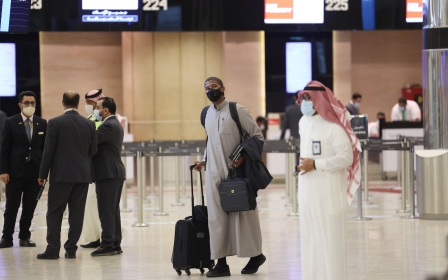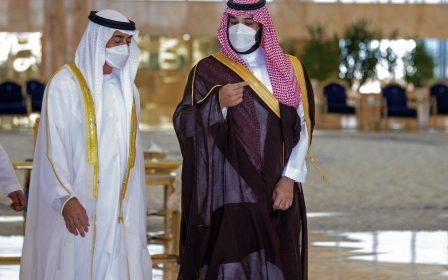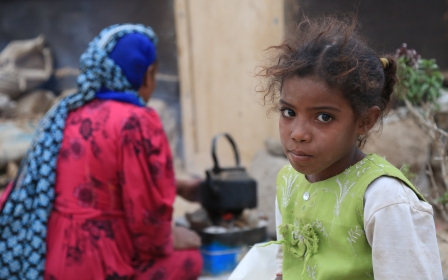Yemen war: US envoy returns to Saudi Arabia to push for ceasefire
The US envoy for Yemen landed in Saudi Arabia on Tuesday as Washington renews efforts to end the protracted six-year conflict.
The US State Department said Tim Lenderking will meet with senior Saudi officials as well as representatives of the Riyadh-backed Yemeni government.
"Now is the time to stop the fighting and enable Yemenis to shape a more peaceful, prosperous future for their country," the State Department said in a statement.
Lenderking's trip, his third in as many months, comes as Houthi rebels continue their military campaign to capture the strategic city of Marib, the Yemeni government's last stronghold in the north of the country.
Washington has been calling on the Houthis to halt the offensive.
"Special Envoy Lenderking will discuss the growing consequences of the Houthi offensive on Marib, which is exacerbating the humanitarian crisis and triggering instability elsewhere in the country," the State Department said on Tuesday.
The blockade
The US administration also called on Saudi Arabia and the Yemeni government to "facilitate the timely import of fuel to northern Yemen" after months of severe restrictions on fuel imports into the country.
According to UN data, 88,689 tonnes of fuel were allowed into Yemen in June, up from 11,799 in May, but still far from the 187,788 imported last October before the restrictions were tightened.
Washington has been urging Riyadh to ease its sea and air blockade on Yemen while also blaming the Houthis for what it calls "manipulation" of imports and worsening the humanitarian crisis.
The Houthis say lifting Saudi Arabia's air and sea blockade must be a prerequisite to ending the fighting, arguing that the humanitarian situation in Yemen should not be used as a bargaining chip.
Saudi Arabia and its regional allies began a bombing campaign against the Houthis in March 2015, after the rebels took over Sanaa and toppled the Riyadh-backed government of President Abd Rabbuh Mansour Hadi.
The United Nations calls Yemen the world's worst humanitarian crisis, and the war has killed more than 230,000 people, causing outbreaks of disease and pushing the impoverished country to the brink of famine.
US efforts
Despite the continuous fighting, the war has largely been at a stalemate with the Houthis in control of Sanaa and most of the north, and forces loyal to Hadi as well as southern separatists backed by the United Arab Emirates in the south.
Saudi Arabia views the Houthis as proxies for Iran, but the rebels claim to represent the Yemeni people against what they call the corruption and aggression backed by the kingdom.
US President Joe Biden ended support for Saudi Arabia's "offensive operations" in Yemen in February and appointed Lenderking as a special envoy to help find a solution to the crisis.
The State Department said on Tuesday that Lenderking will meet with officials from the United Nations to discuss "the importance of an inclusive peace process and a rapid appointment of a new UN envoy".
Martin Griffiths, the outgoing UN envoy, was appointed head of the United Nations Office for the Coordination of Humanitarian Affairs in May. Swedish diplomat Hans Grundberg is reported to be the leading contender to replace Griffiths, but his appointment has not been officially confirmed by the UN.
Middle East Eye propose une couverture et une analyse indépendantes et incomparables du Moyen-Orient, de l’Afrique du Nord et d’autres régions du monde. Pour en savoir plus sur la reprise de ce contenu et les frais qui s’appliquent, veuillez remplir ce formulaire [en anglais]. Pour en savoir plus sur MEE, cliquez ici [en anglais].





